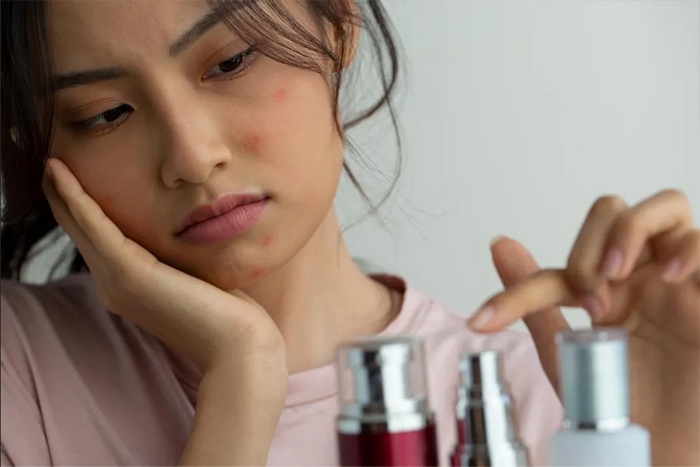Mental wellness and its impact on our relationships and productivity have been at the forefront of most people’s minds. But here’s one area that’s still overlooked: how it may affect the way we look.
That’s why we asked dermatologist Dr. Lim Ing Kien (or better known as Dr. Ingky) for his knowledge regarding mental health and how it can affect the way we look.

We spoke to dermatologist, Dr. Ingky.
Let’s just say that there are surprising adverse effects mental health issues could have on our skin.
We encourage you to read on because this can affect anyone.
Mental health has a direct correlation to physical health

Dr. Ingky claims that it has long been recognised that physical health, which includes skin health, and mental health are directly related.
A person who is experiencing mental health issues typically gives little to no thought to how they look or dress, and may even skip the most fundamental skincare regimens.
But in order to relax and unwind, we frequently turn to habits. A straightforward skincare regimen can also reduce stress, promote self-care, and boost self-esteem and confidence. In that sense, it can improve one’s mental health.
Stress, depression, and anxiety can release stress hormones

Stress hormones like cortisol and adrenaline are released when someone is constantly depressed, anxious, or under stress.
Acne breakouts will result from increased sebum production brought on by cortisol. These hormones can also cause the skin to become inflamed, which can lead to conditions like eczema, psoriasis, and even hair loss.
While there are lotions and pills to cope with the negative side effects brought on by poor mental health, they only serve as a temporary fix.
If your mental health doesn’t start to get better, the skin problems that go along with it will persist. Therefore, it is crucial to treat both the skin and the mind simultaneously.
Bad skin issues after a major stressful event are common

Dr. Ingky has treated a lot of patients who frequently experience flare-ups of their eczema or acne.
However, after thoroughly reviewing their medical histories, he is typically able to link their skin problems to a significantly stressful event that is now occurring in their lives such as upcoming examinations or a pressing job deadline.
When this is brought up to the patients, they frequently realise that their bad skin problems are related to their stress levels.
Therefore, encouraging patients to decompress while using medical creams and appropriate skincare can help resolve the majority of their skin problems.
It is okay to change your skincare routine during bad mental health days

In fact, it’s beneficial to stick to a simpler routine when you’re feeling down. This is because developing skin care habits can cause small spikes in pleasant hormones, primarily dopamine (a rewarding chemical) and serotonin (a mood stabiliser).
It’s no exaggeration to say that simple skincare habits are as helpful as asking a therapist for help, so it’s best to find and stick to a routine, regardless of mood.
Retail therapy has been shown to reduce stress, so you can buy some simple and beneficial skin care products to pamper your skin as it can reinforce your own self-worth.
At the end of a long day, it is important to cleanse the skin to remove all impurities. Dr. Ingky recommends applying a sheet mask or gel mask to the skin to relax.
You can also store the mask in the refrigerator to increase the cooling effect. Then, while applying the mask, turn off the lights, turn on your favourite music, sit back, and relax. It can take as little as 15-20 minutes for this daily routine to improve your mental health.
Featured image credit: XFrame


